Engaging young people to green cities & sustain lives
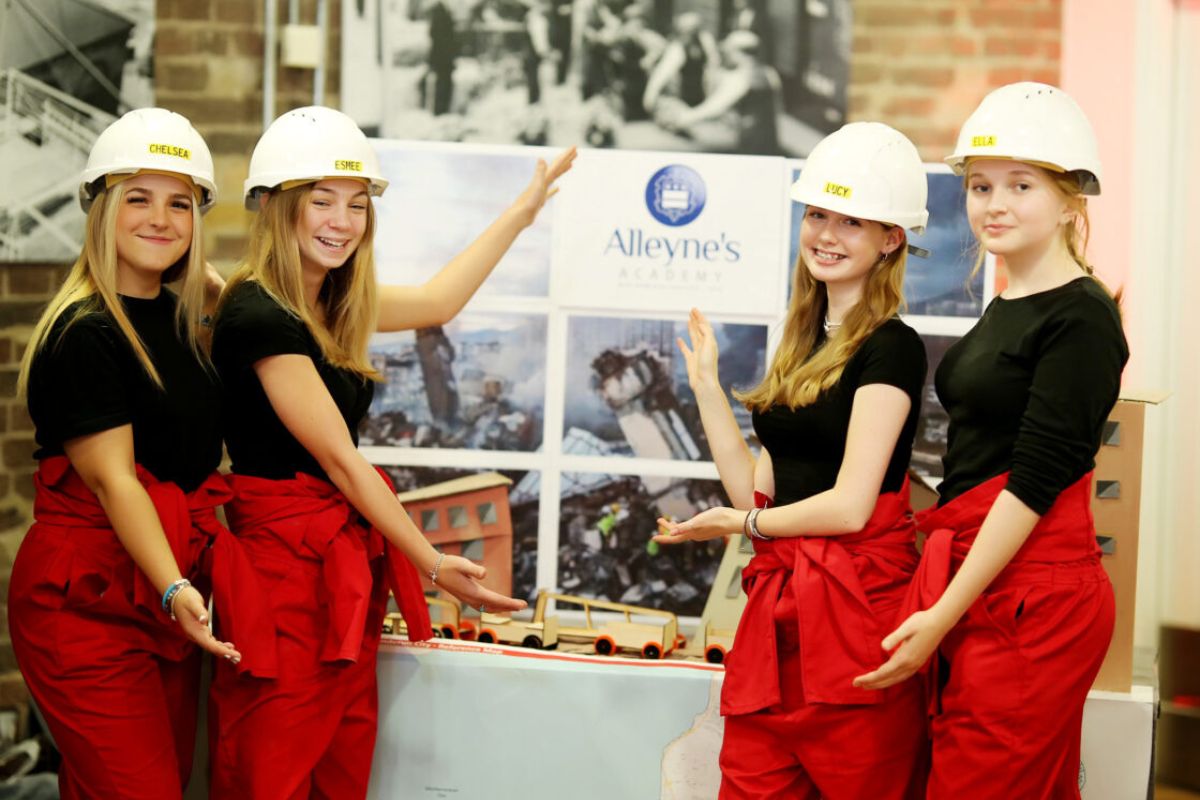
International STEM competition winners encourage a more sustainable future!
The British International Education Association (BIEA) is proud to bring together the winners and participants of the annual BIEA International Science, Technology, Engineering and Mathematics (STEM) Youth Innovation Competition at the Museum of London Docklands. Focusing on the theme of greening cities and sustaining lives, the not-for-profit organisation brought children together from as far as China, Turkey, Macau, USA, Croatia, Malaysia, France, India, Poland, Hong Kong, Ireland, Scotland, Wales, Northern Ireland and England to showcase their competition entries and discuss how to build a more sustainable future.
Young people aged between 9-18 came together in project teams to imagine what sustainable cities of the future could look like. The results were remarkable. Dr Alex Holmes head of STEM for BIEA and head judge said she was ‘blown away’ with the quality of the competition entries. She was delighted with the enthusiasm the students had for the topic of greener cities.
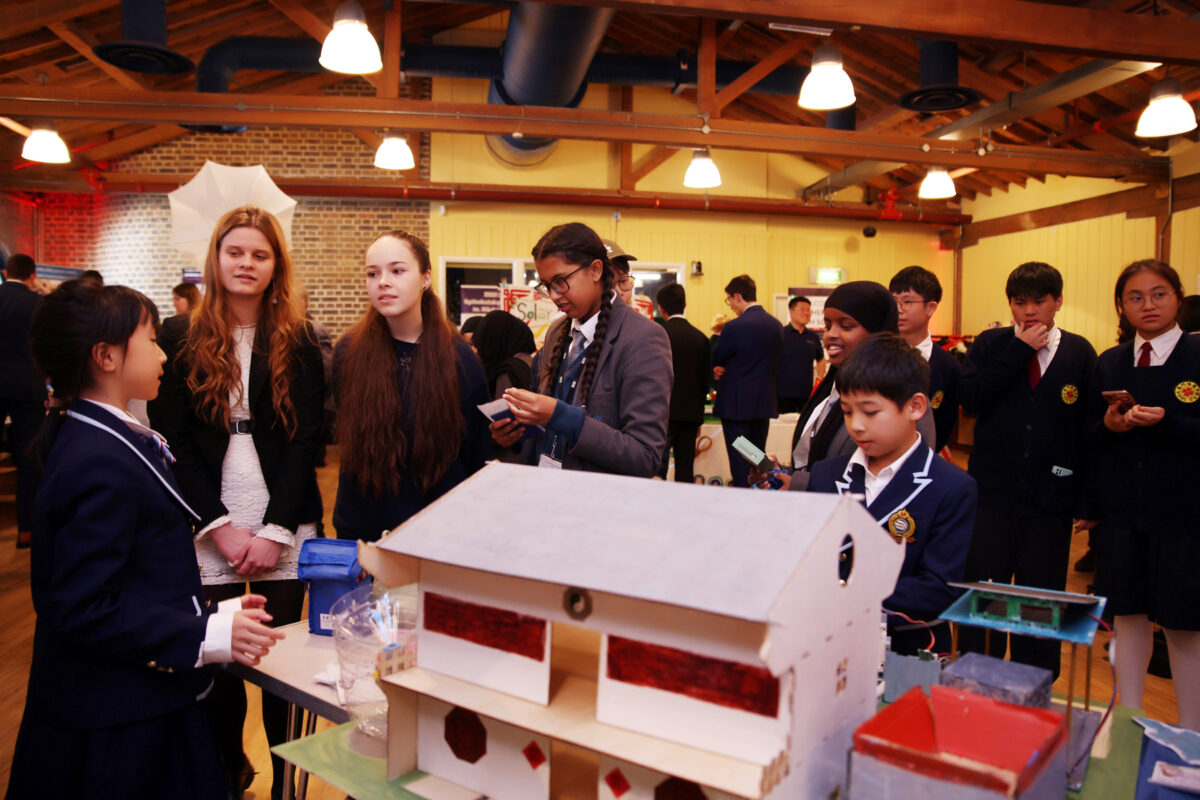
Students from 10 countries brainstormed ideas for sustainability with London students at the Museum of London Docklands
‘Students investigated the latest technologies in renewables, built models, ran calculations and designed buildings and townscapes with incredible flair and imagination’
Dr Alex Holmes, Head of STEM, British International Education Association
The competition brief asked teams to use innovative ideas and green technologies to ensure humans and nature would be able to co-exist in harmony by designing sustainable buildings, landscapes and transport systems. They were asked ‘to imagine a future where fossil fuels have become ‘a thing of history and only renewable energy sources and sustainable materials are used.’
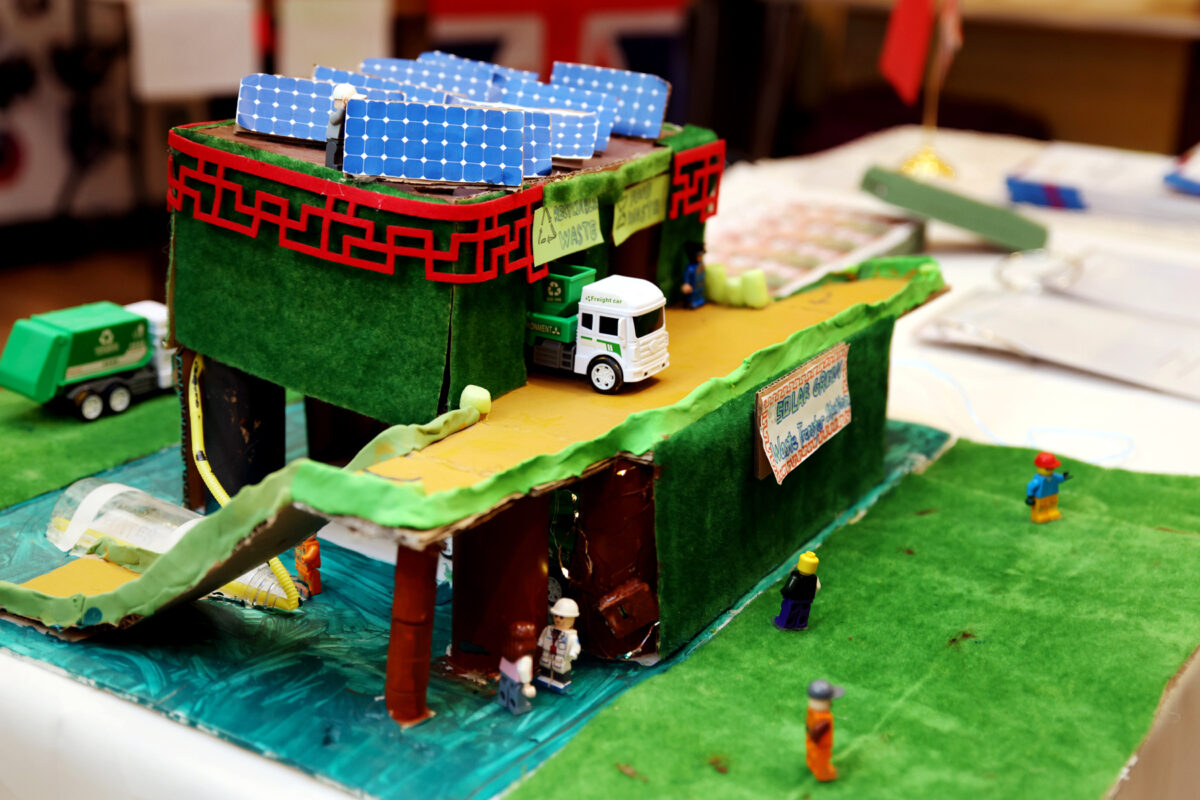
Urban waste processing station design from Team Green Frog, China
Some of the teams developed ideas not only for the future but for the present. ‘Team NetZero’ from TED Ankara College redesigned buildings destroyed in the recent earthquake in Turkey and Syria. Simay, Bora and Arda’s project proposed using local materials such as basalt, adobe and reed to cut expenses, design more compact houses and rebuild in a way that is ‘carbon neutral, eco-friendly and earthquake resilient’. They were delighted to visit London and showcase their abilities and talents in the BIEA STEM competition. ‘Team Scooterbus’ is an all-girls team from Alleyne’s Academy in the midlands, their design was a self-powered multi-passenger transport for disaster-hit zones.
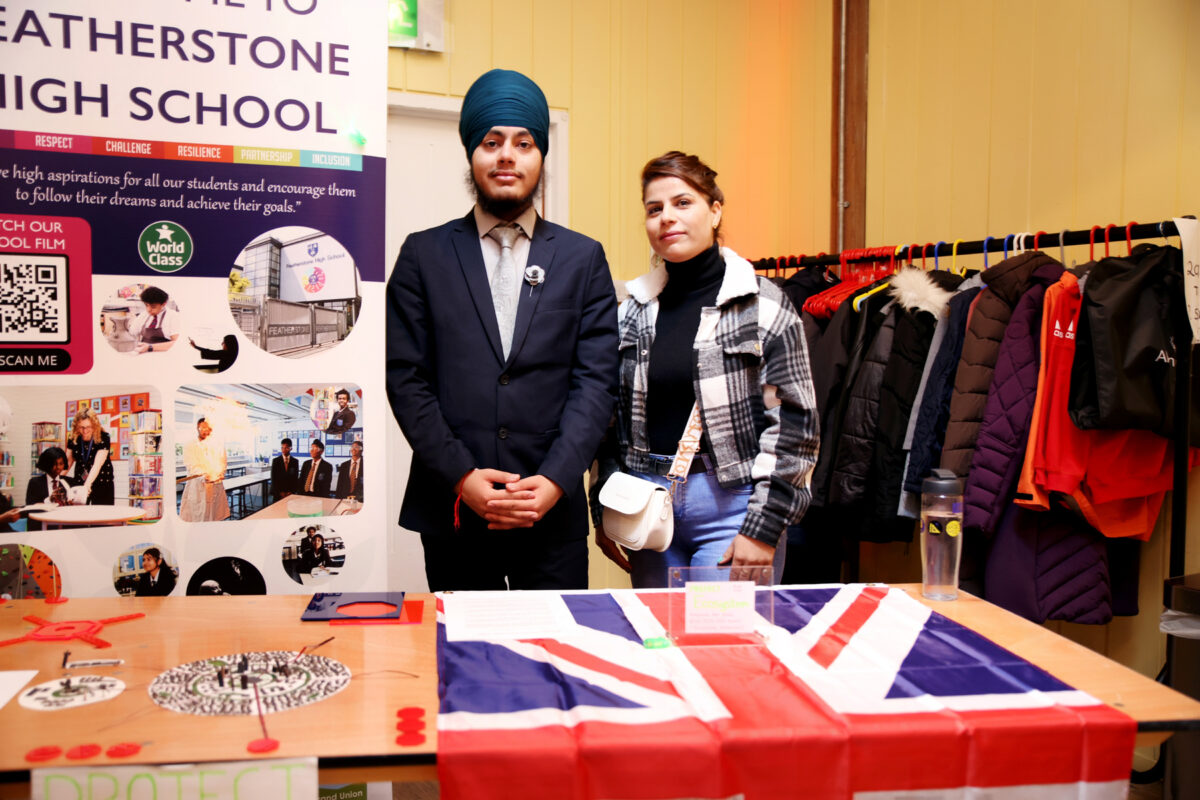
Project Ecosystem from Featherstonehigh School, UK offered an intergrated approach to city sustainablity
Other innovative solutions included vertical gardens, air filtration capture systems, solar windows and hydrogen-powered trams for Ukraine. ‘Team Copernicus’ from Poland designed residential floating houses for Lagos, Nigeria and ‘Team Green Side of the Street’ from Pula Croatia revitalised their local park with composting points and green gyms to help local residents and tourists ‘feel at one with nature’. Vyners School from the UK designed eco-friendly buildings with drainage systems to collect rainwater which could be reused. Team Future Lifes from Scotland won the Champion prize for their carbon-neutral building in flooding areas.
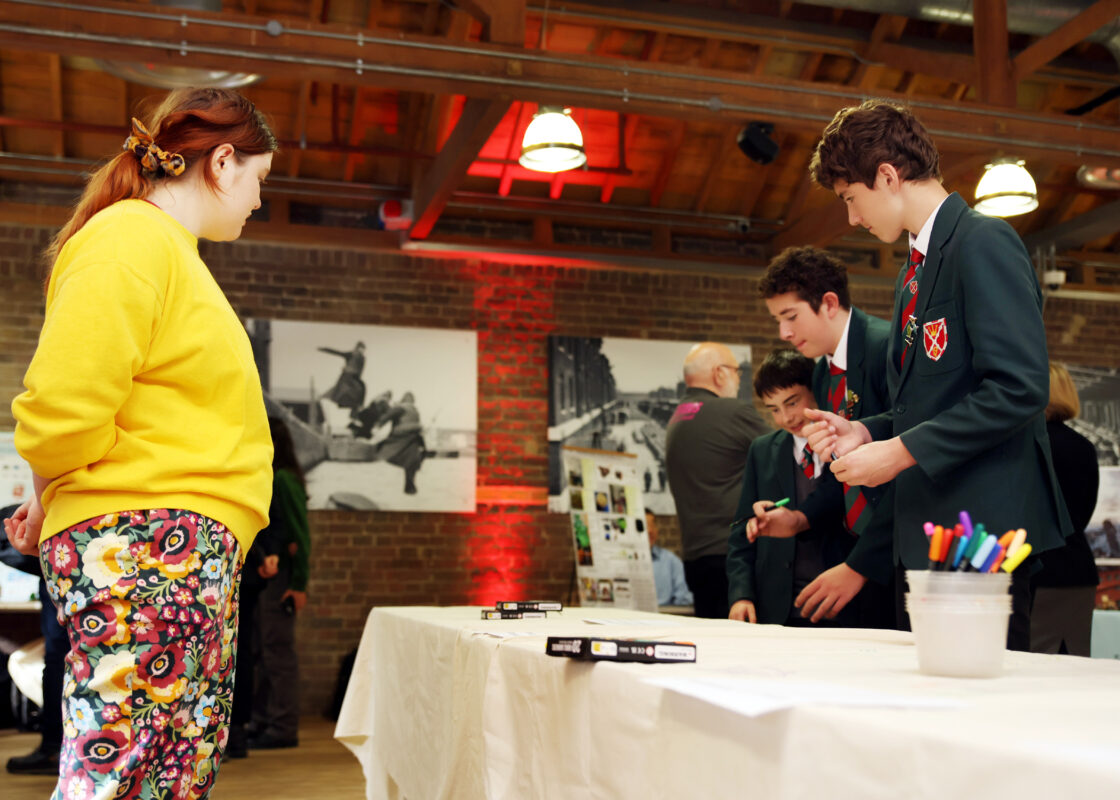
Students write messages of climate action to world leaders
Meghana, Moksh and Charmy from the Delhi Public School Anandapuram were members of two of the teams taking part in the competition ‘Team Urban INC’ and ‘The Verdant Modellers’. Despite feeling cold in London they weren’t too jet-lagged and ‘really enjoyed meeting the members of the other teams and seeing their designs and solutions’. ‘There are students here from so many countries around the world. It’s really interesting’, they agreed.
Liu from Team ‘Green Frog’, at the China Soong Ching Ling Science & Culture Centre for Young People won First Prize and the Peer Award at the competition. He was delighted to be in London having worked so hard on his competition entry, his team design included a waste station for communities in Beijing.
Douglas Gilmore, managing director at the Museum of London Docklands which hosted the event said, ‘it was wonderful to see so many young people come together for this competition’.
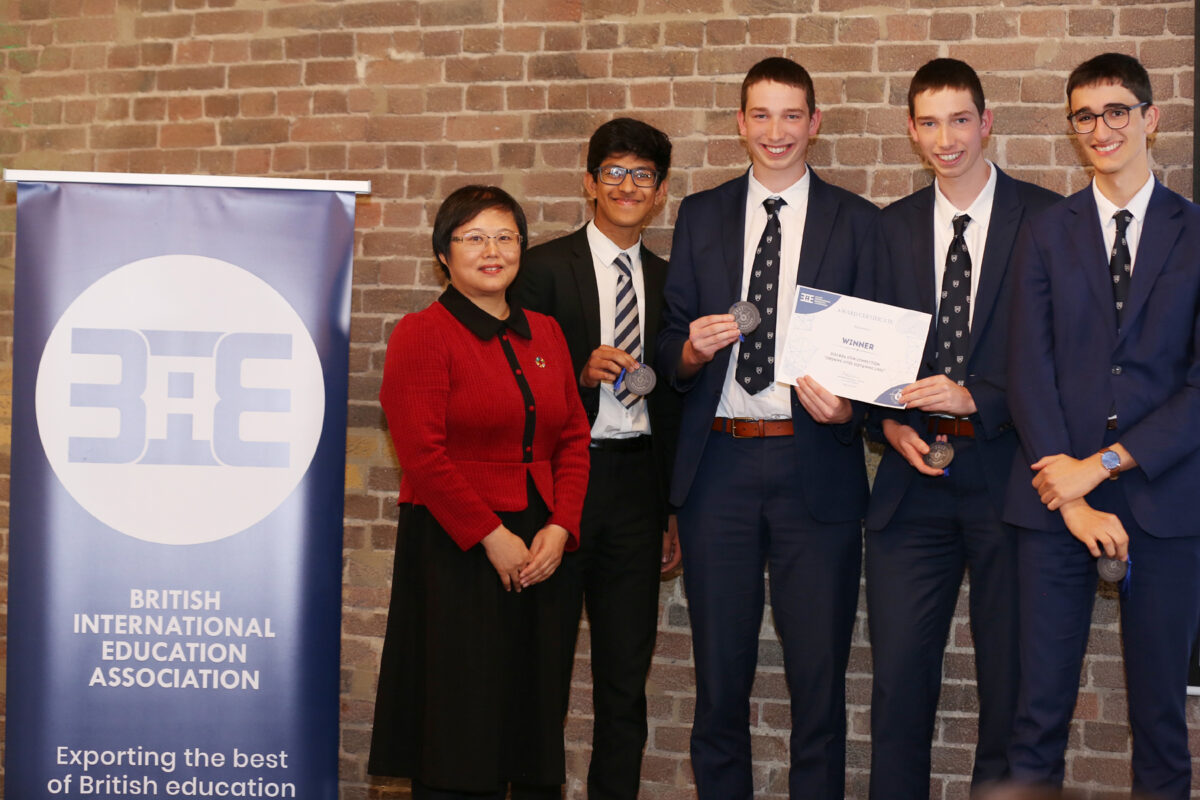
Team Hedge from Reading School had ideas to make office buildings more sustainable in Reading
BIEA’s regional partner China Soong Ching Ling Science & Culture Centre for Young People was represented by Deputy Director Ruige Zhang who was ‘deeply impressed by the quality of the students’ work’ and particularly interested in one of the winning entries from Northern Ireland – ‘Team RFL Design’ developed an idea for improving air quality in the Chinese city of Chongqing. She added the competition provided an excellent platform for exchange and mutual understanding in youth and science activities.
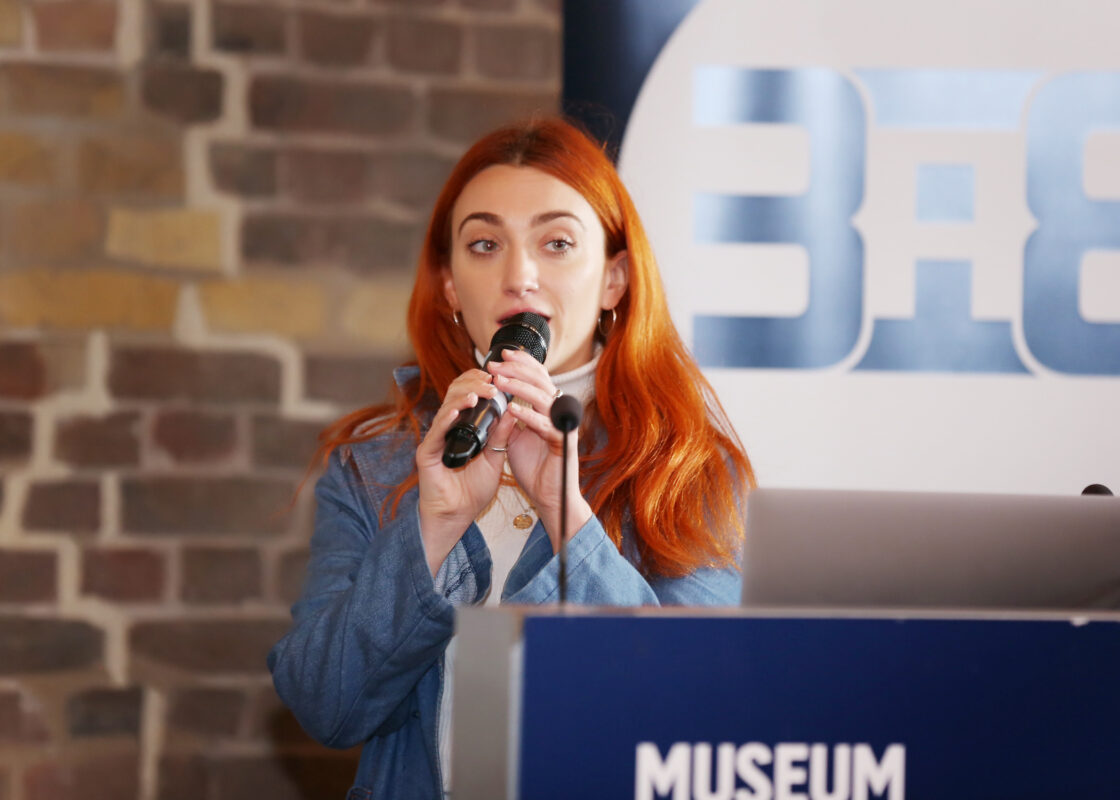
Abbi Fletcher, University of the Arts
Speakers included the University of the Arts’ Abbi Fletcher who chairs the Climate Emergency Network in colleges across London. She explained how students who will go on to work in the creative industries are using art to respond to the climate emergency. They designed stunningly colourful and eye-catching 360-foot banners which were displayed down a building in London’s Kings Cross. Their subject – a selection of plant species which have been lost in the British Isles due to climate change and environmental degradation.

Mete Coban, councillor of London Borough of Hackney
Mete Coban was the youngest ever local councillor in the London Borough of Hackney and chair of the Climate Change, Environment and Transport committee there. He explained how young people can make real changes to their environment by getting involved in local politics. He cited the example of ‘school streets’ in Hackney where cars are banned from driving past schools in Hackney at certain times of the day leading to a 74% reduction in emissions. The initiative was designed after school students made placards and protested about the low air quality outside their school. Since the introduction of ‘school streets’ 30% more children walk to school in the London Borough.
The STEM Showcase concluded with an announcement for the 2024 BIEA STEM Theme — Sustainable Fashion, challenging consumer behaviours and manufacturing processes in the fashion industry.
For more information on how you can join next year’s STEM events, contact: [email protected]

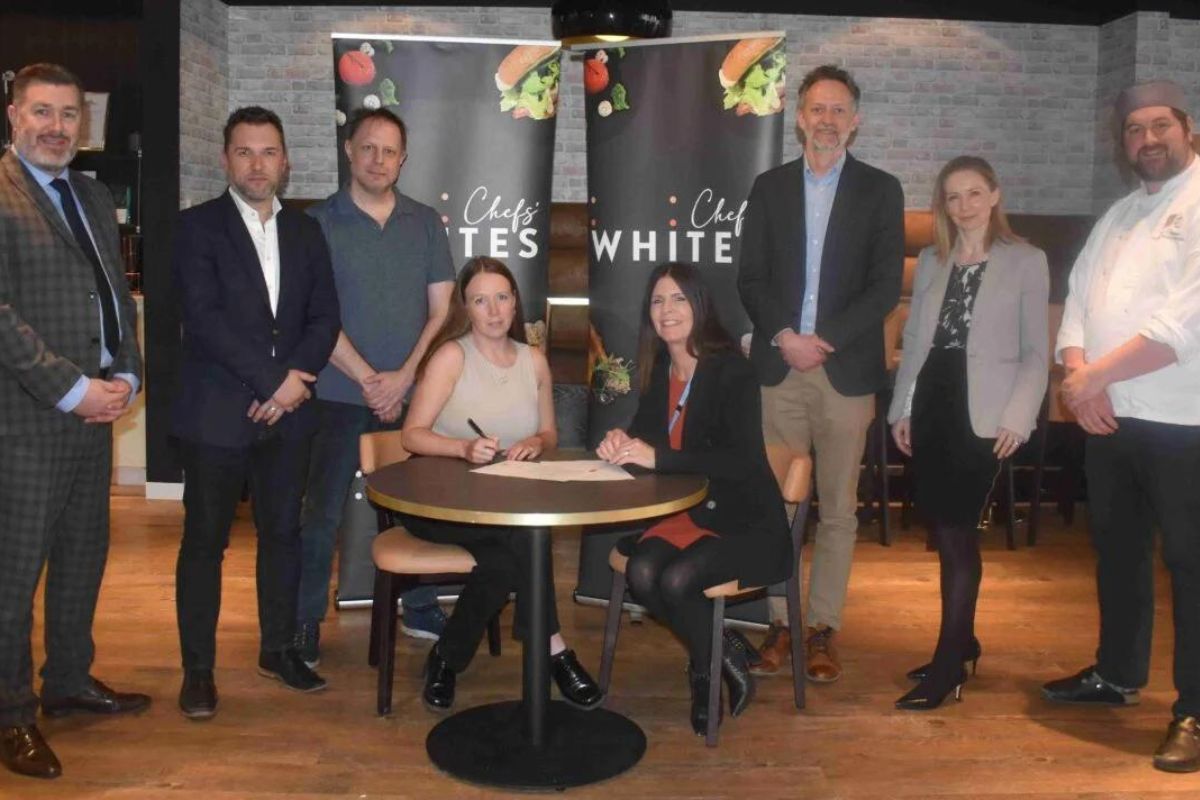

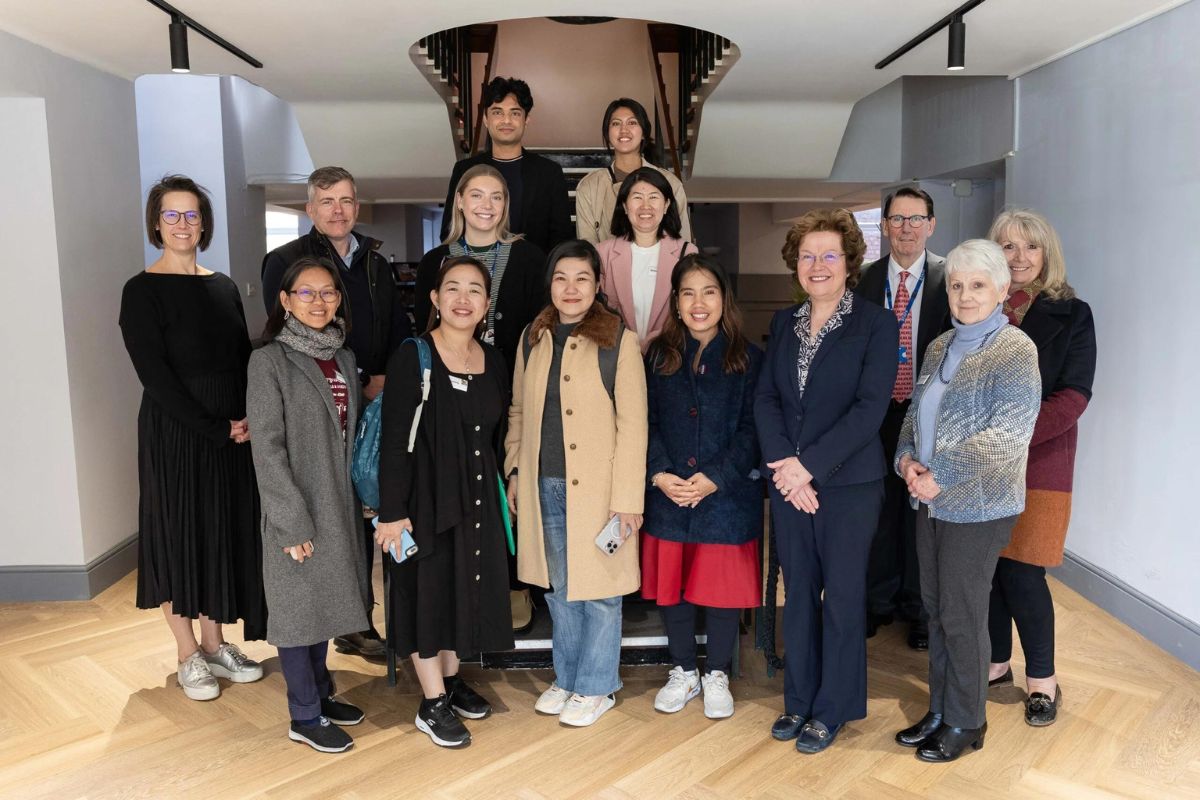
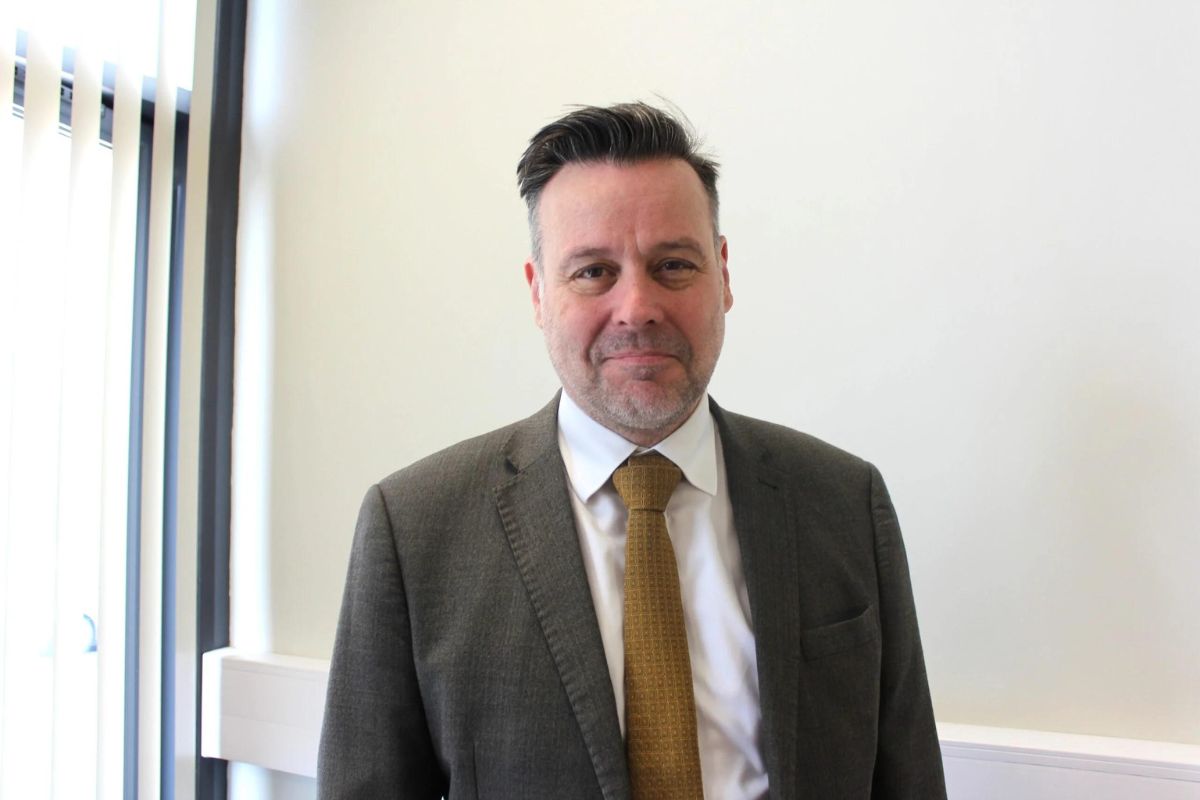
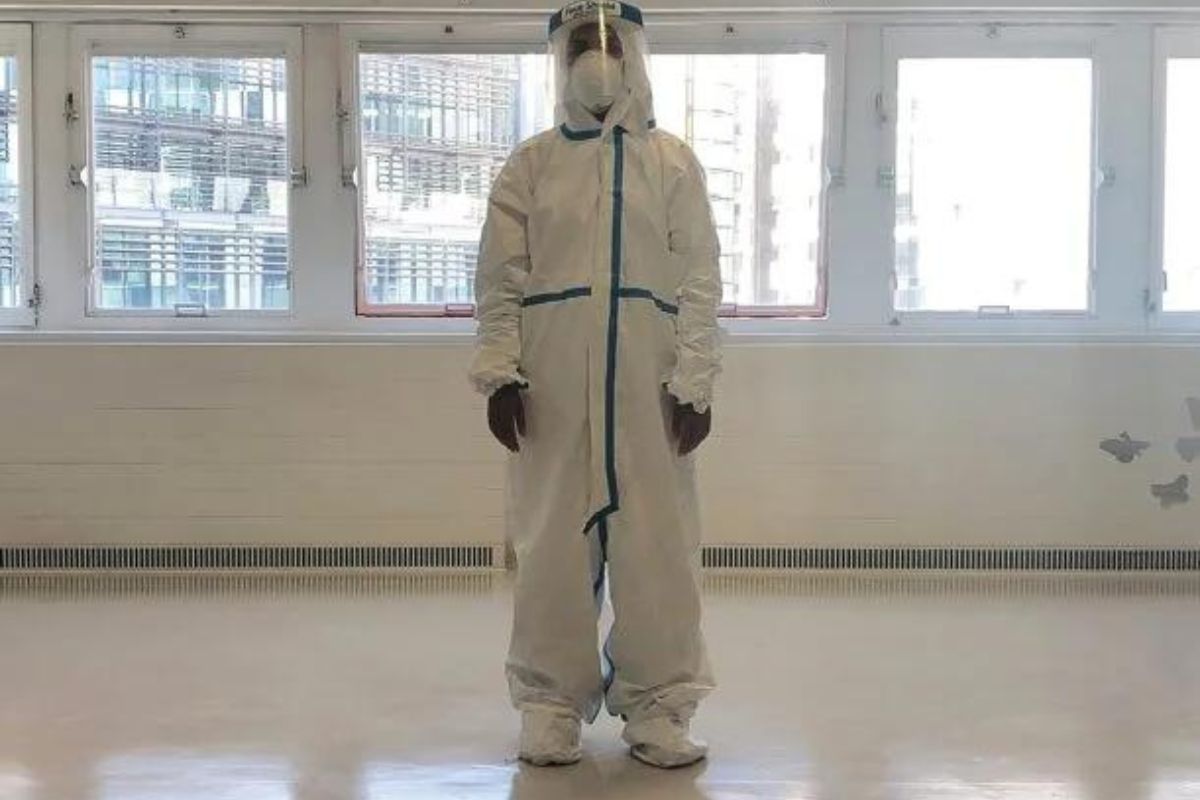
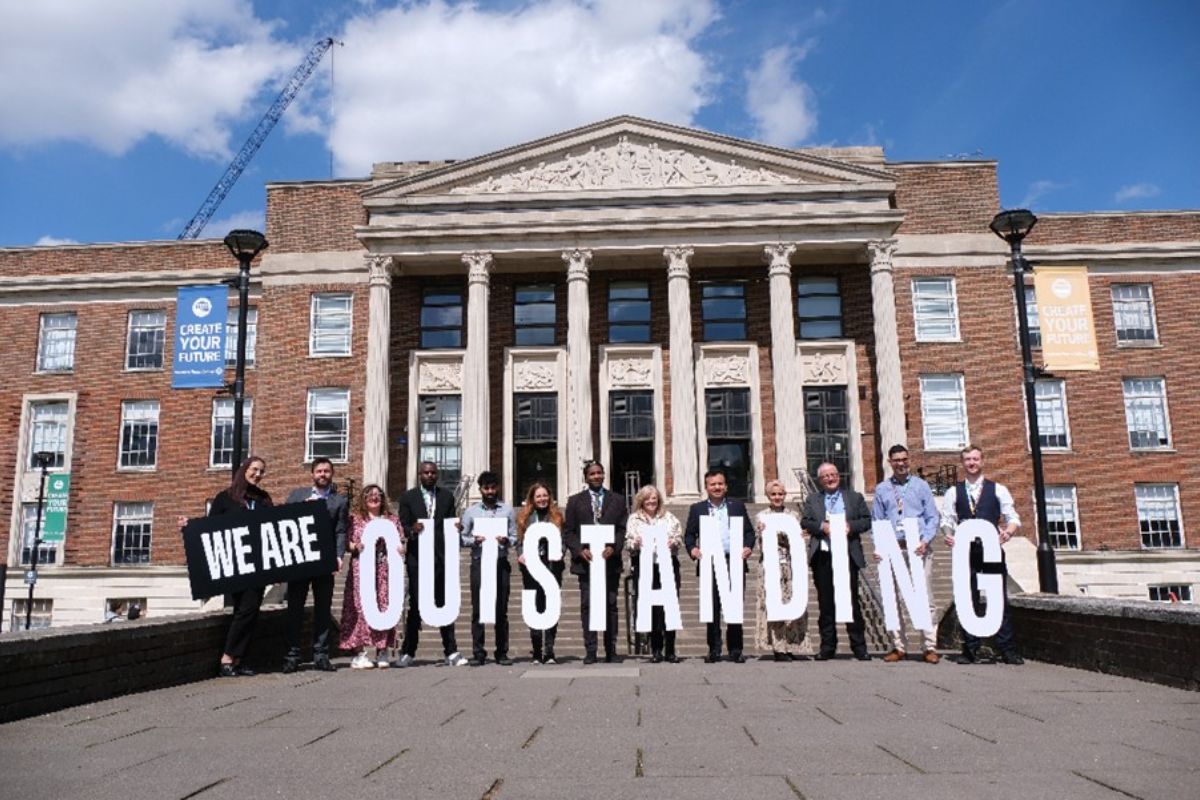
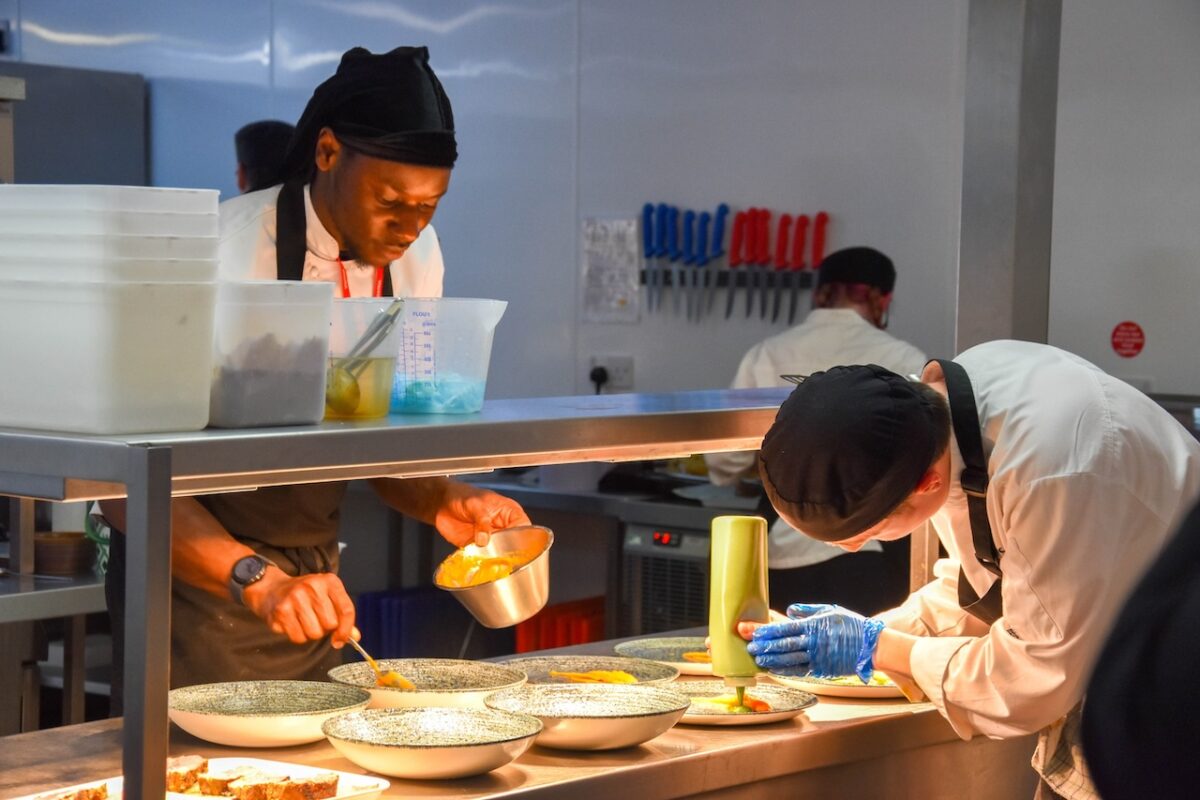
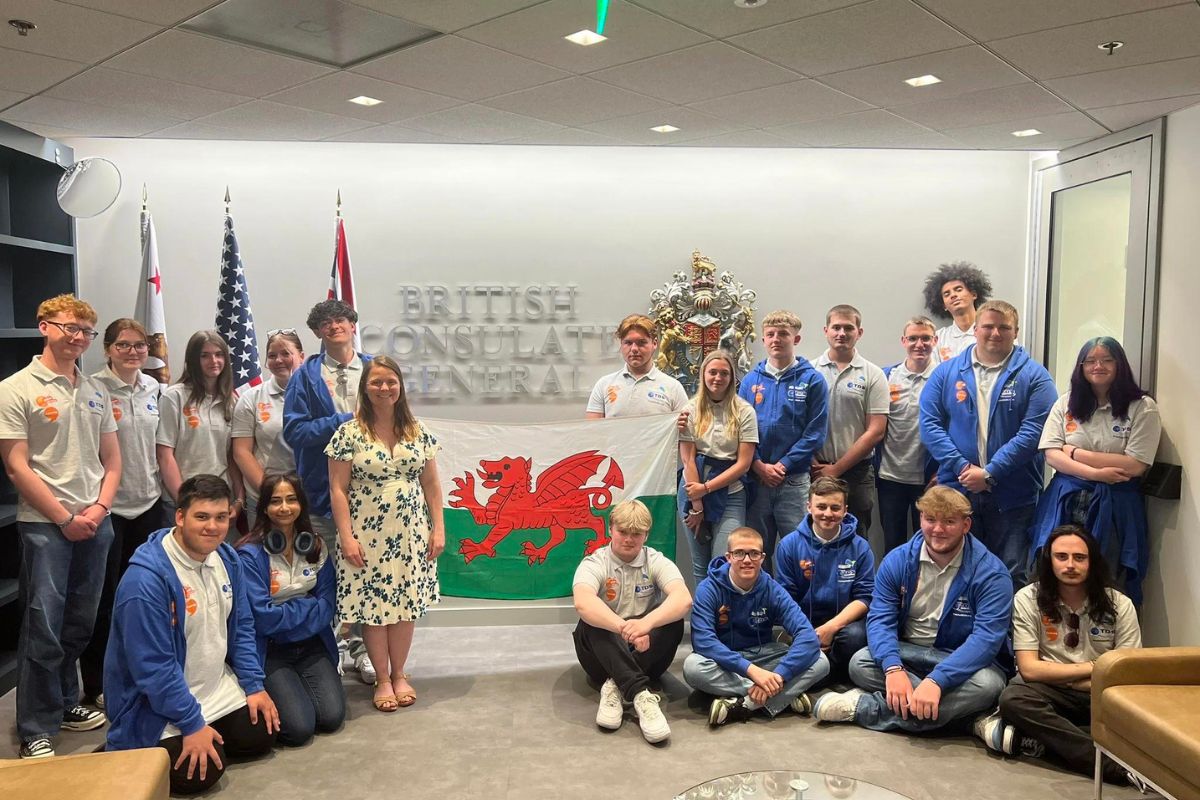
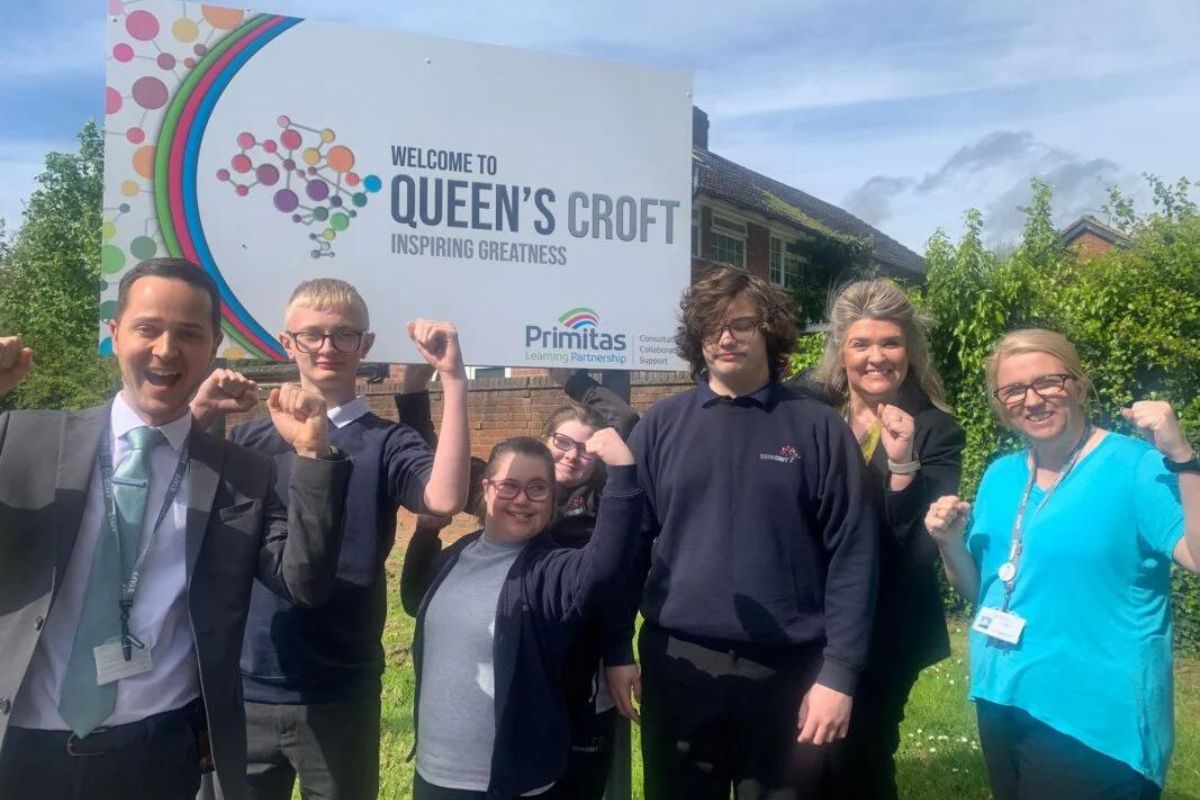
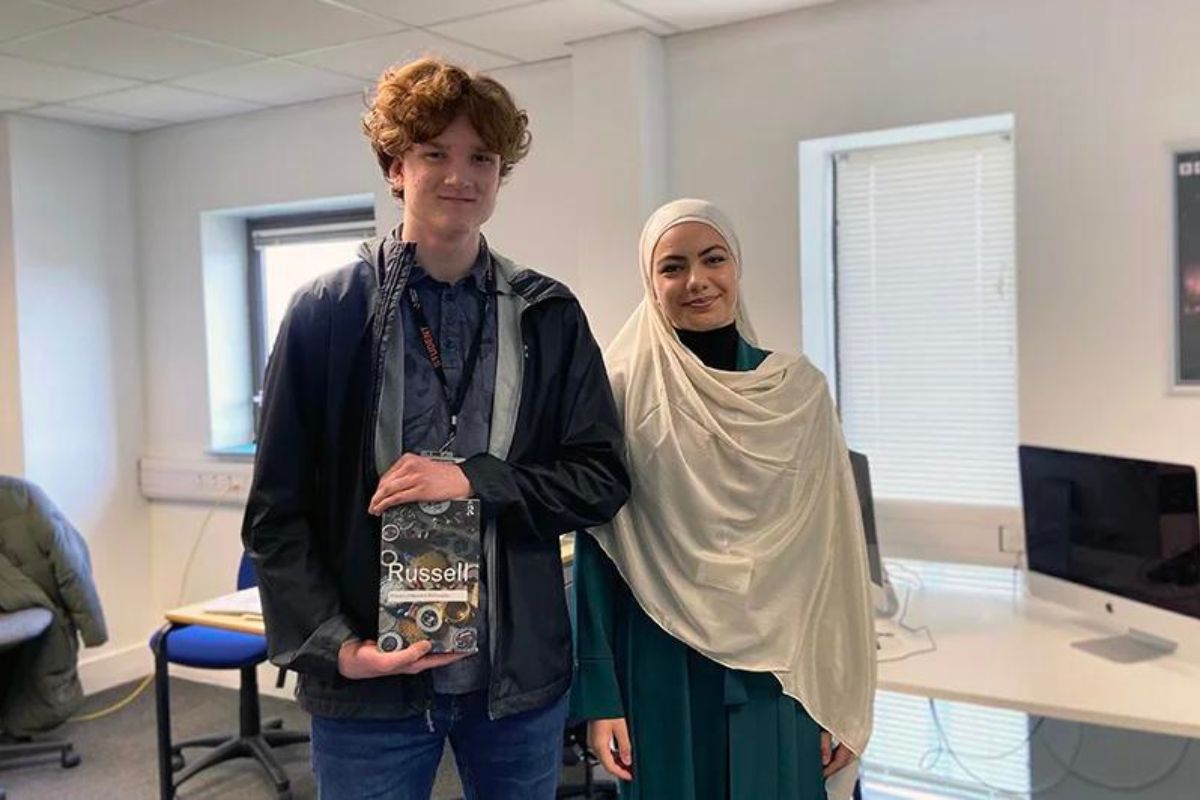
Responses